
Class of 1975
Download BCom'1975 (3.5 MG)
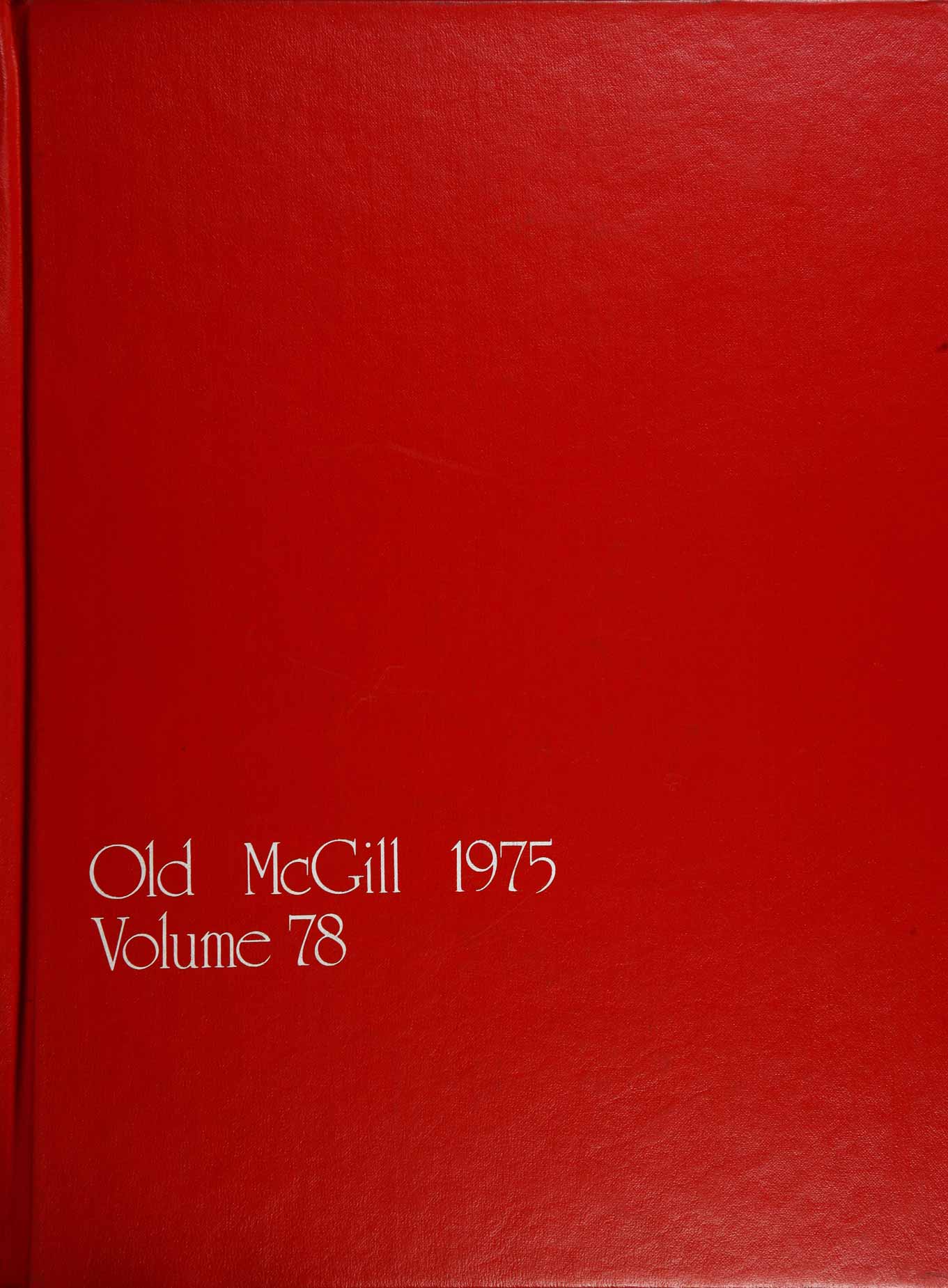
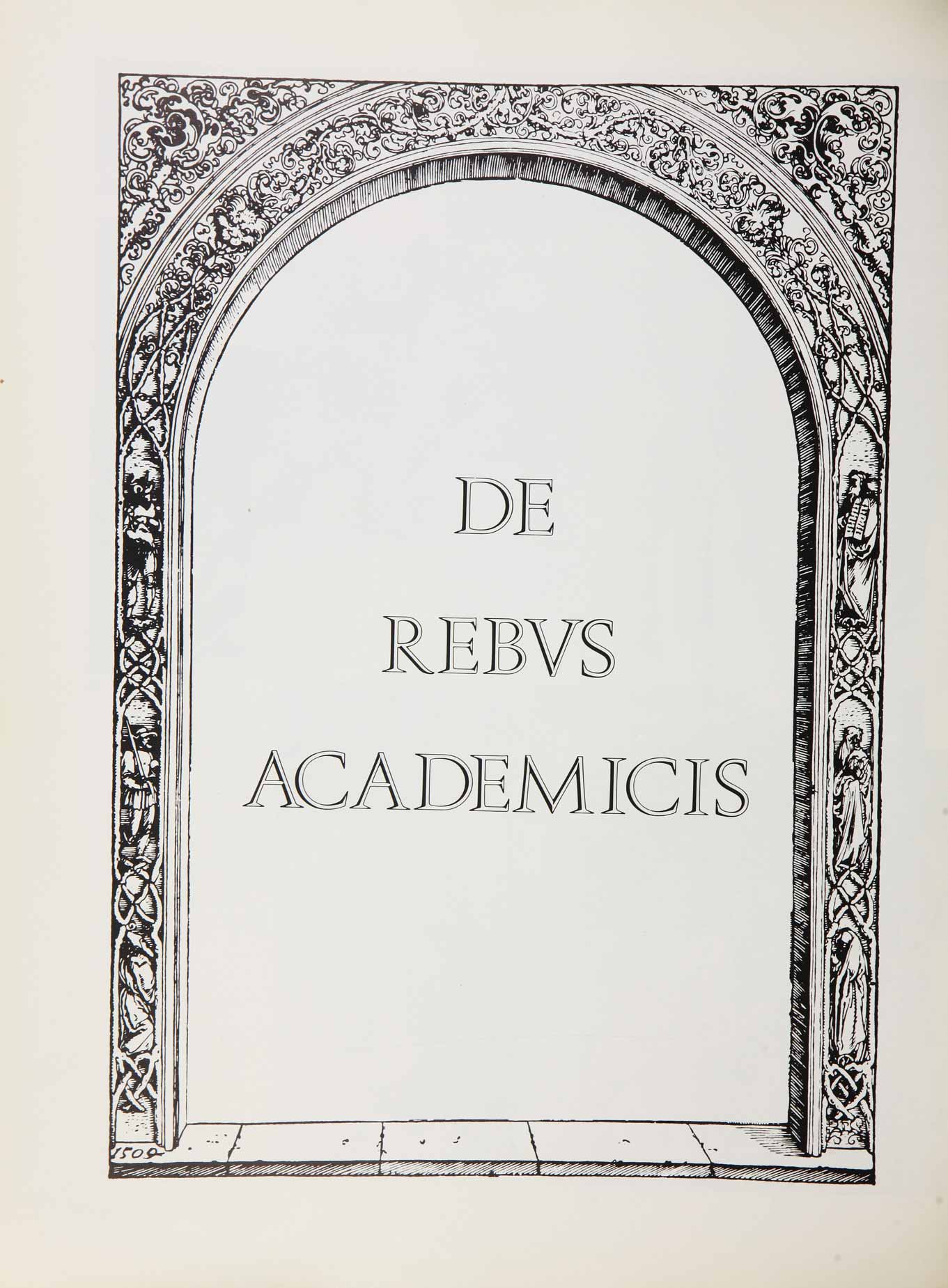

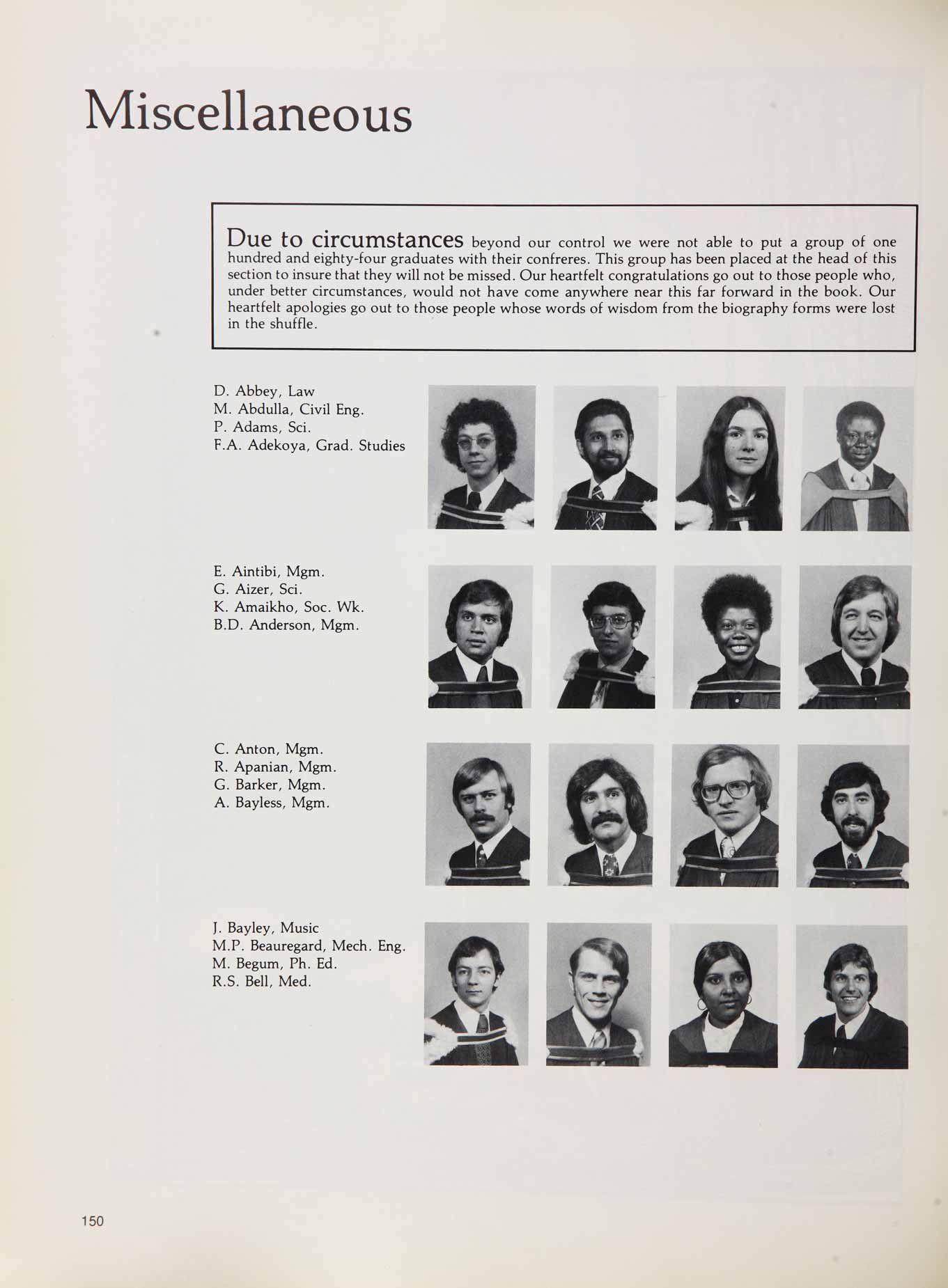
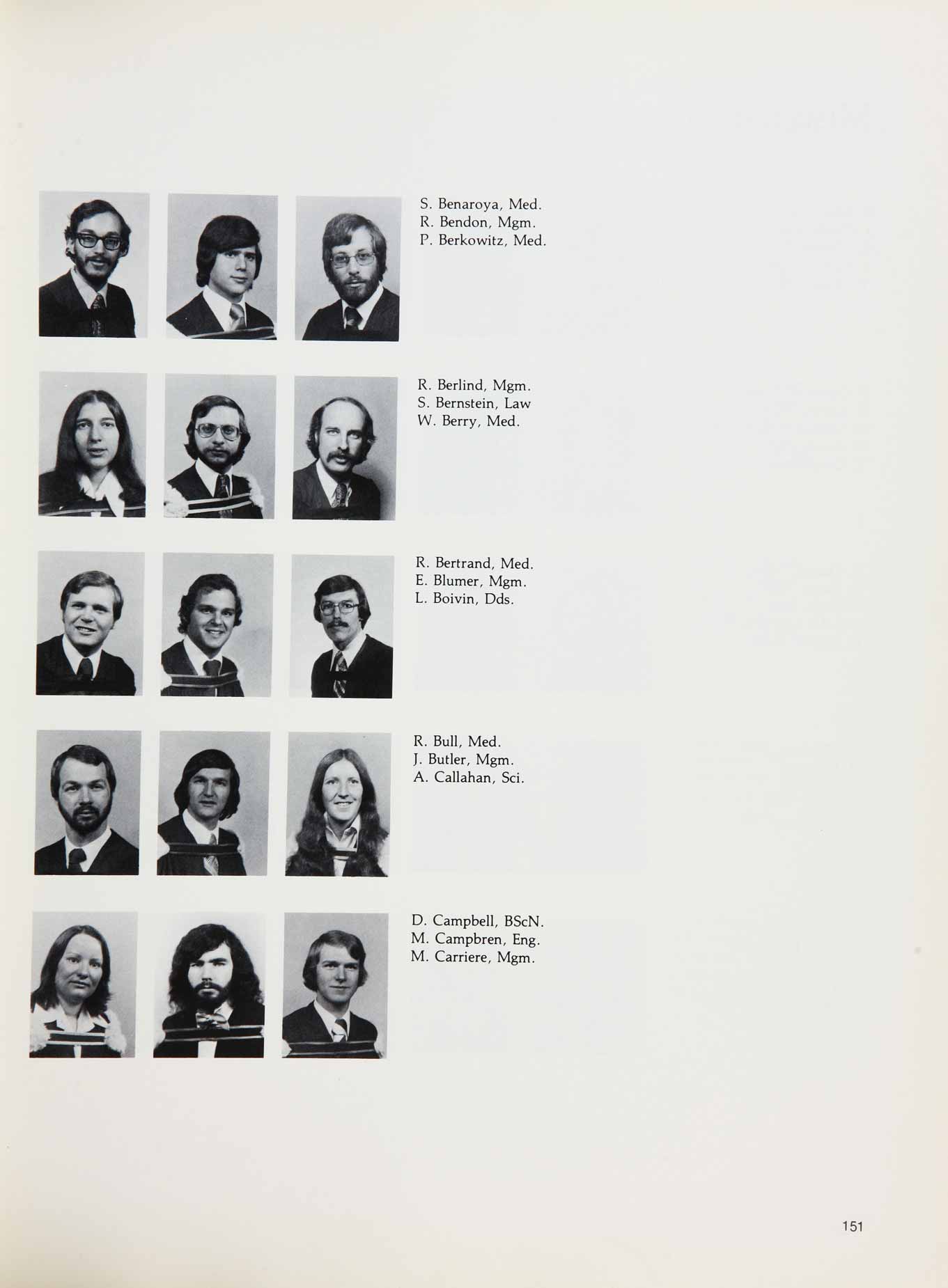
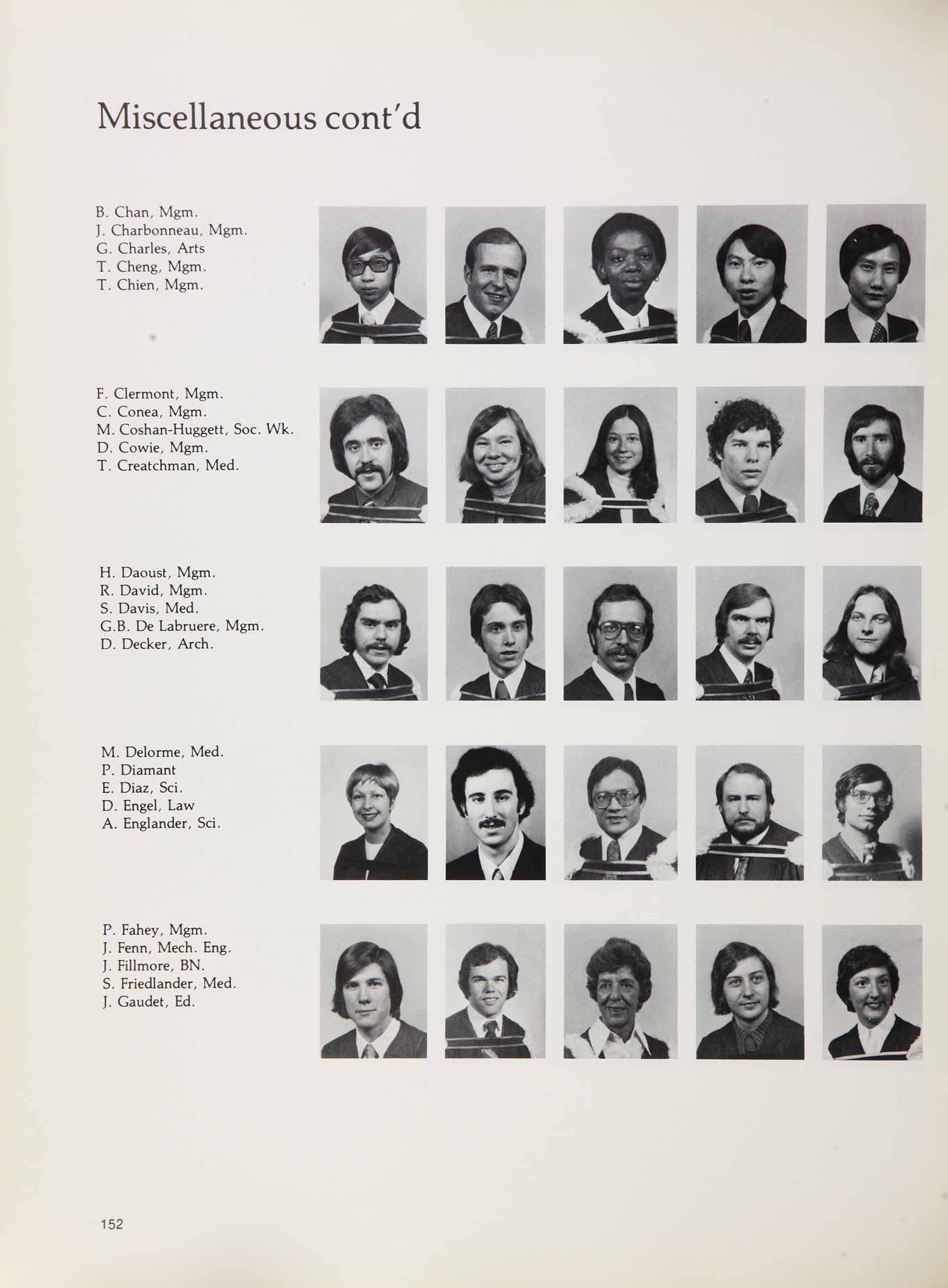
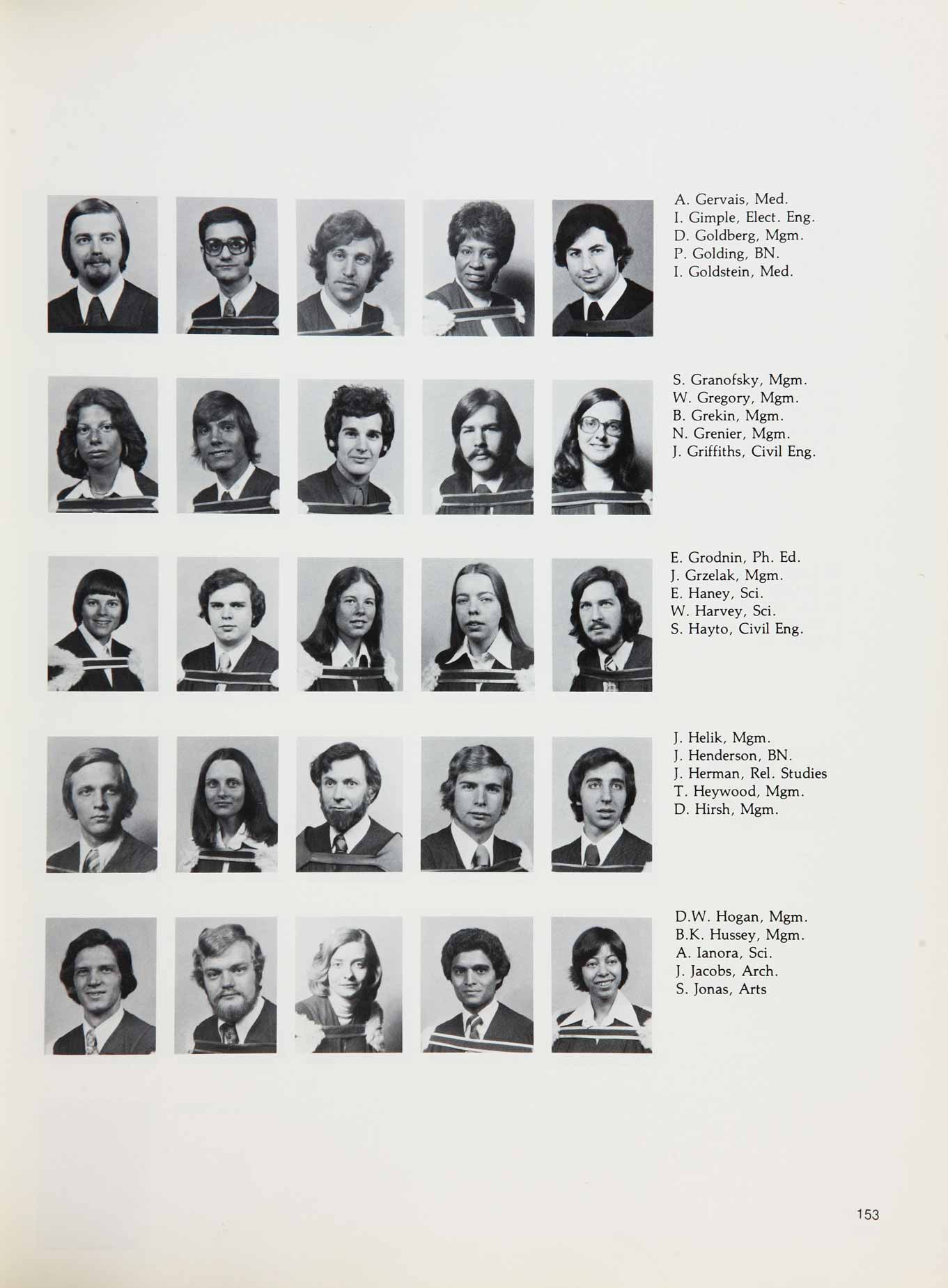
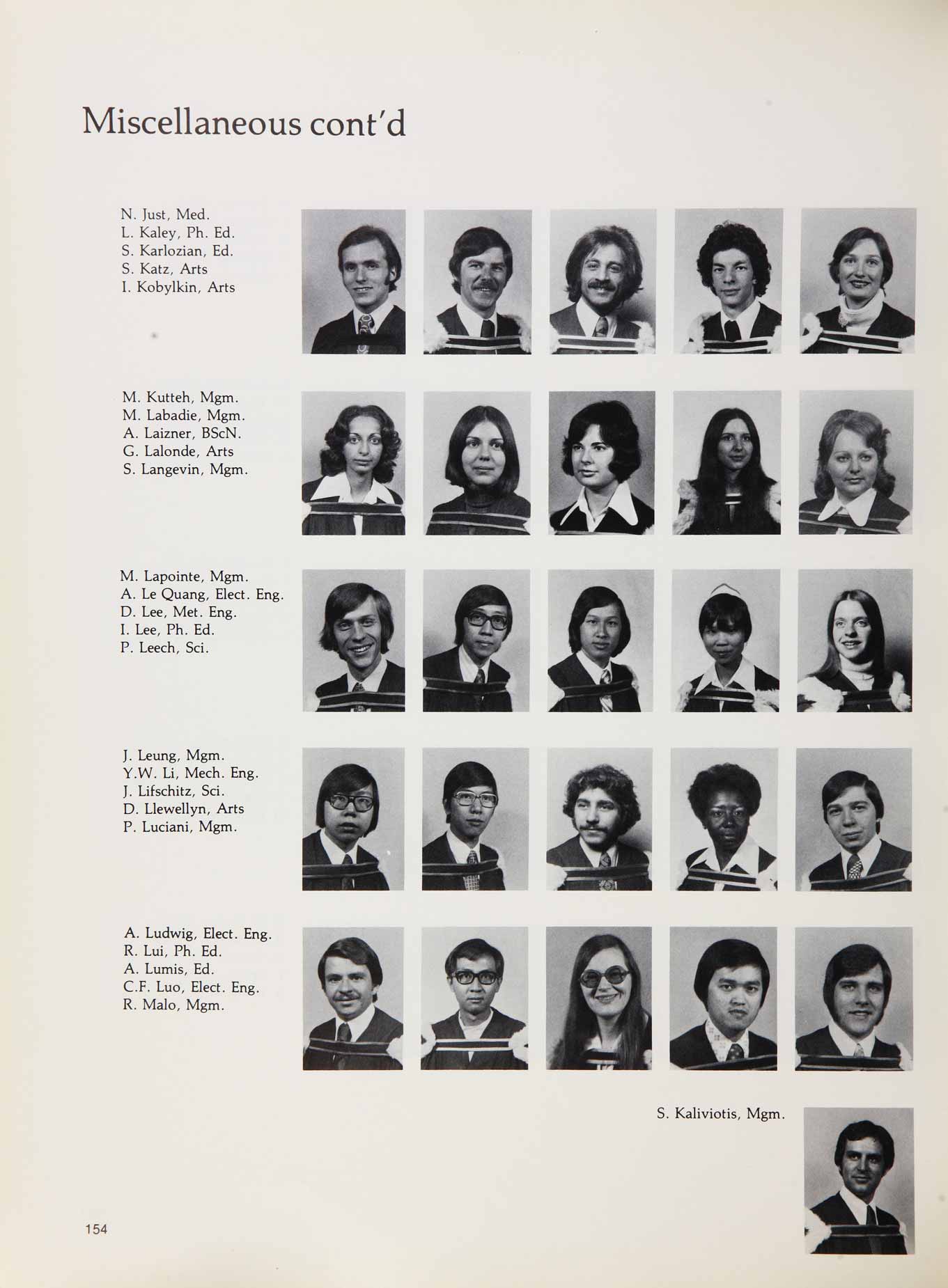
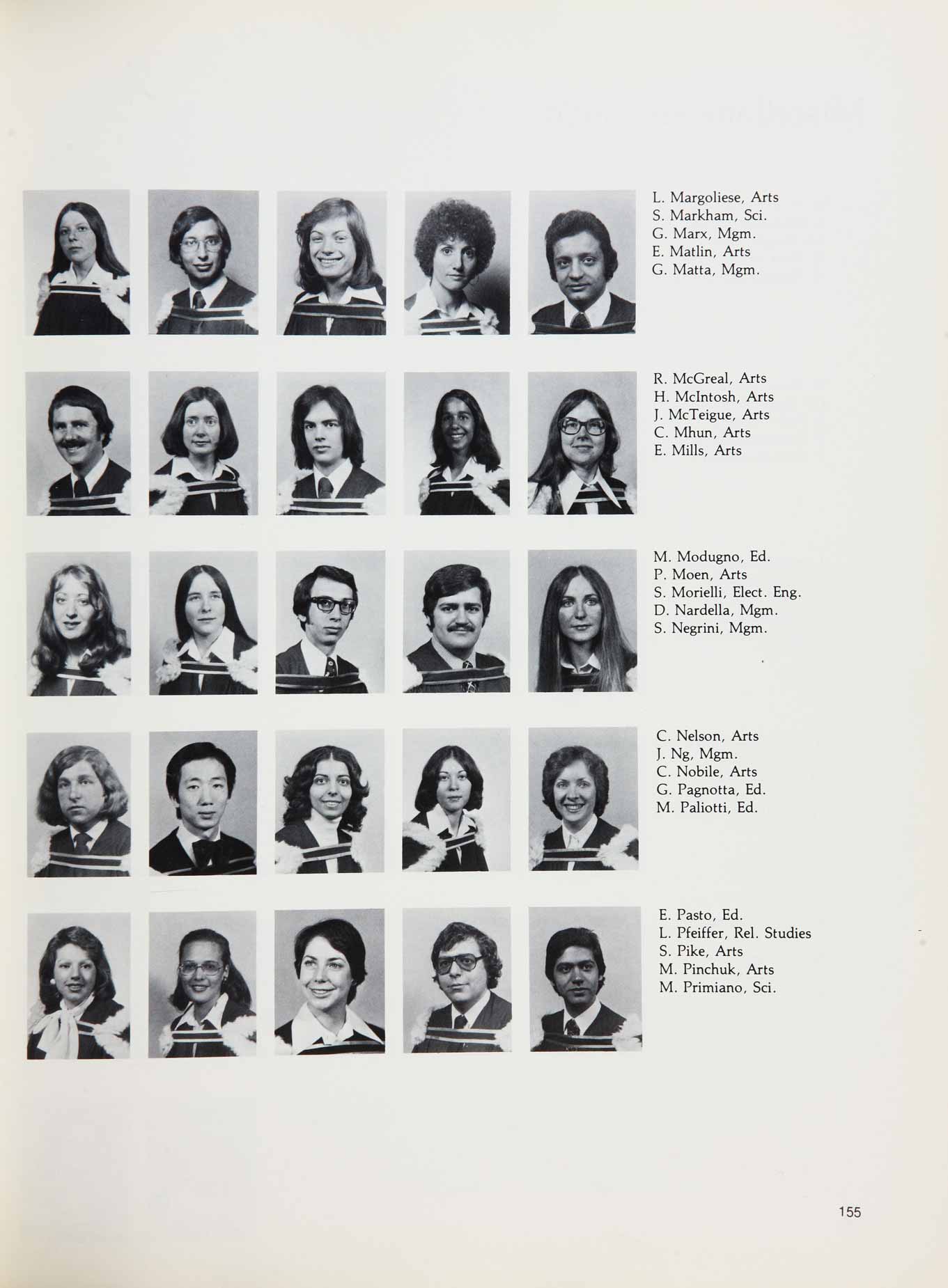

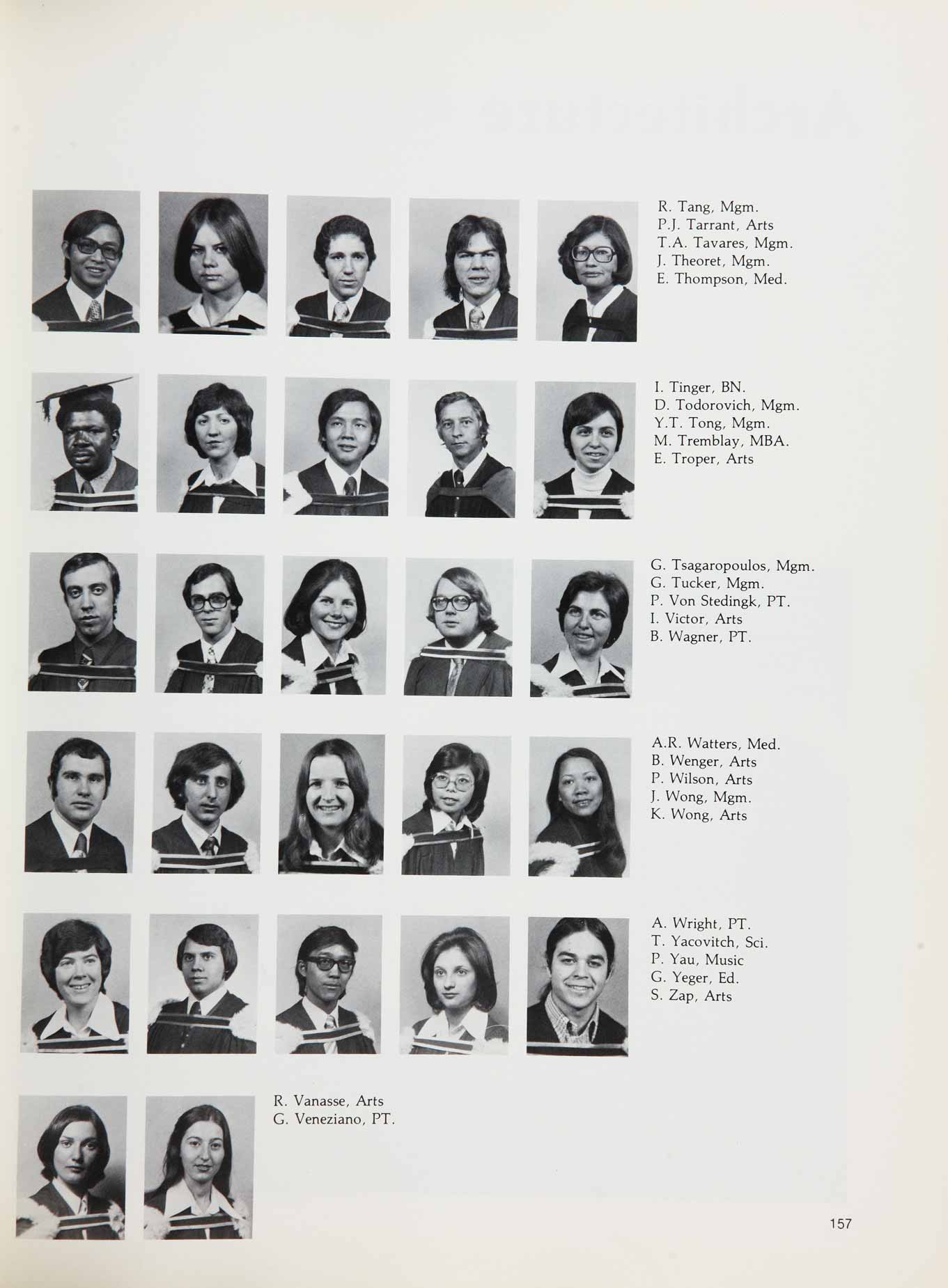
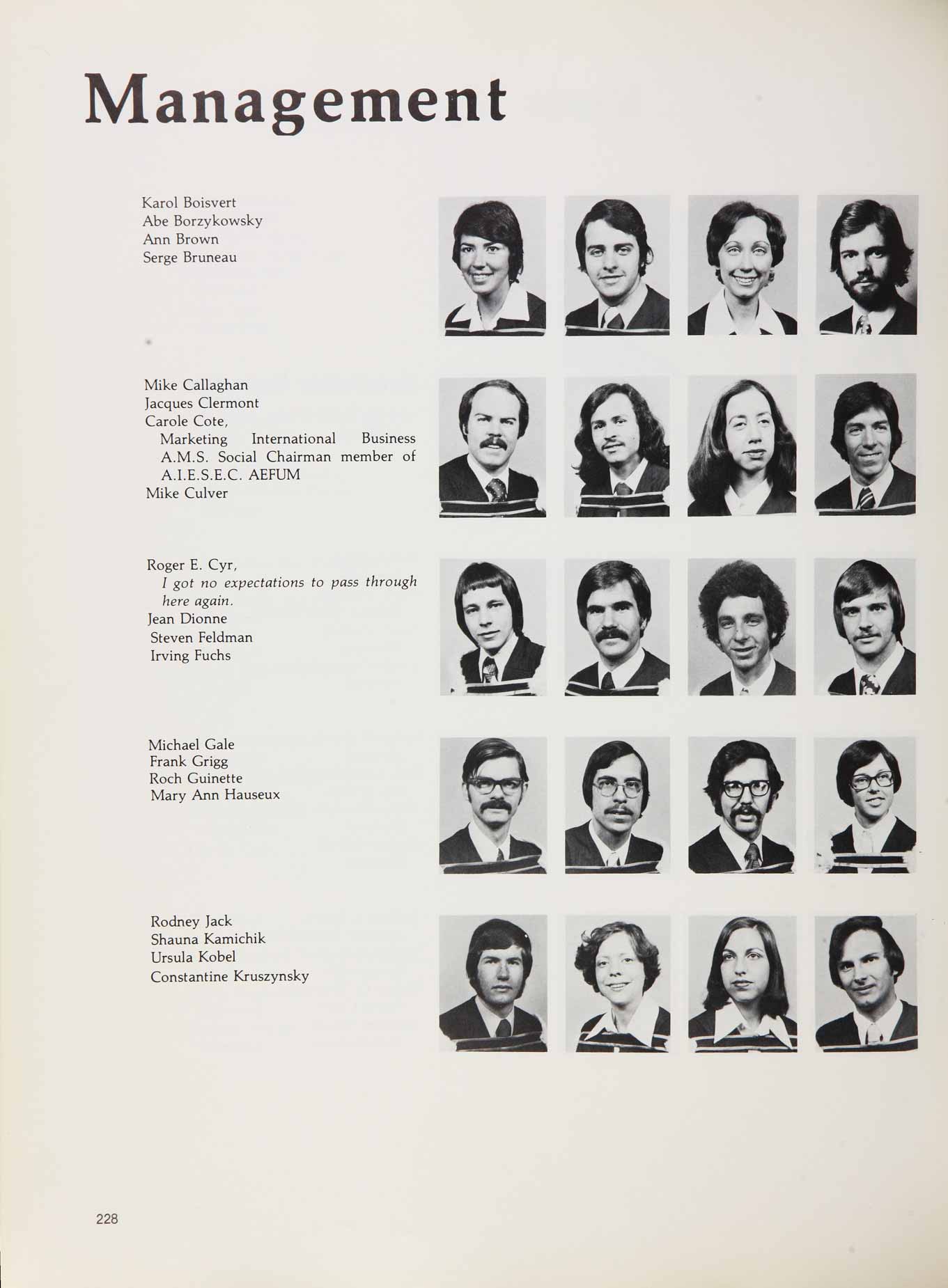
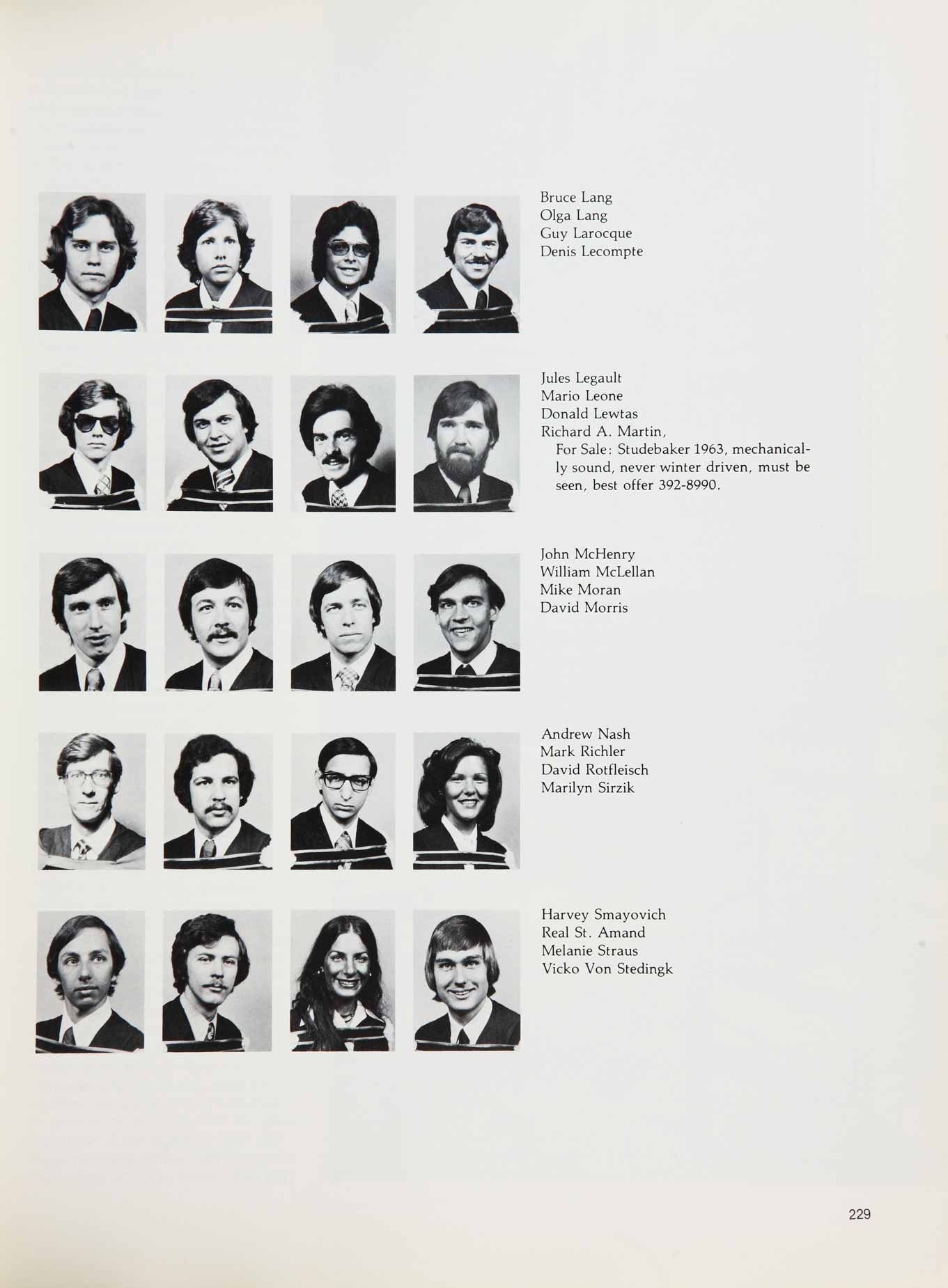
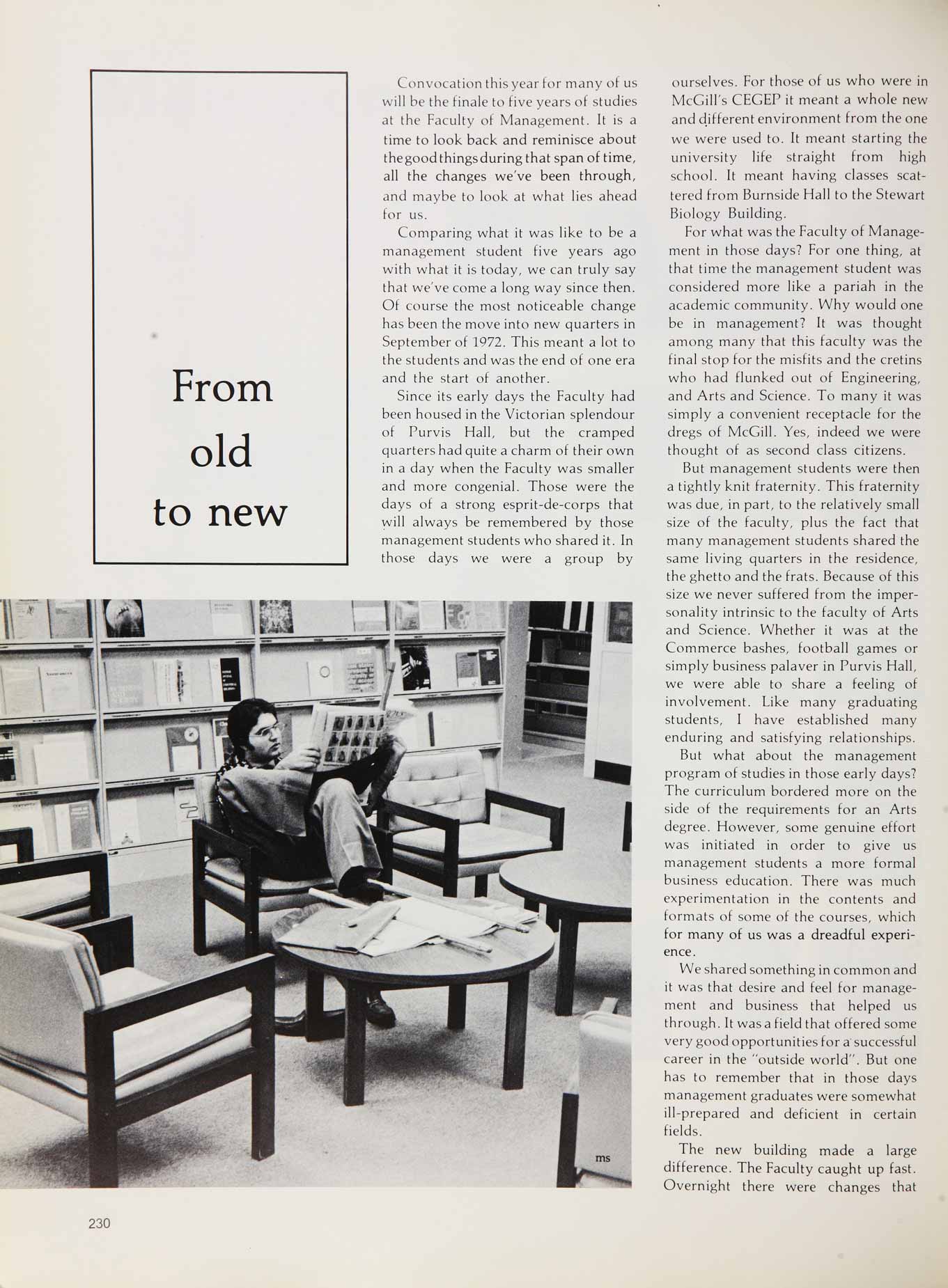
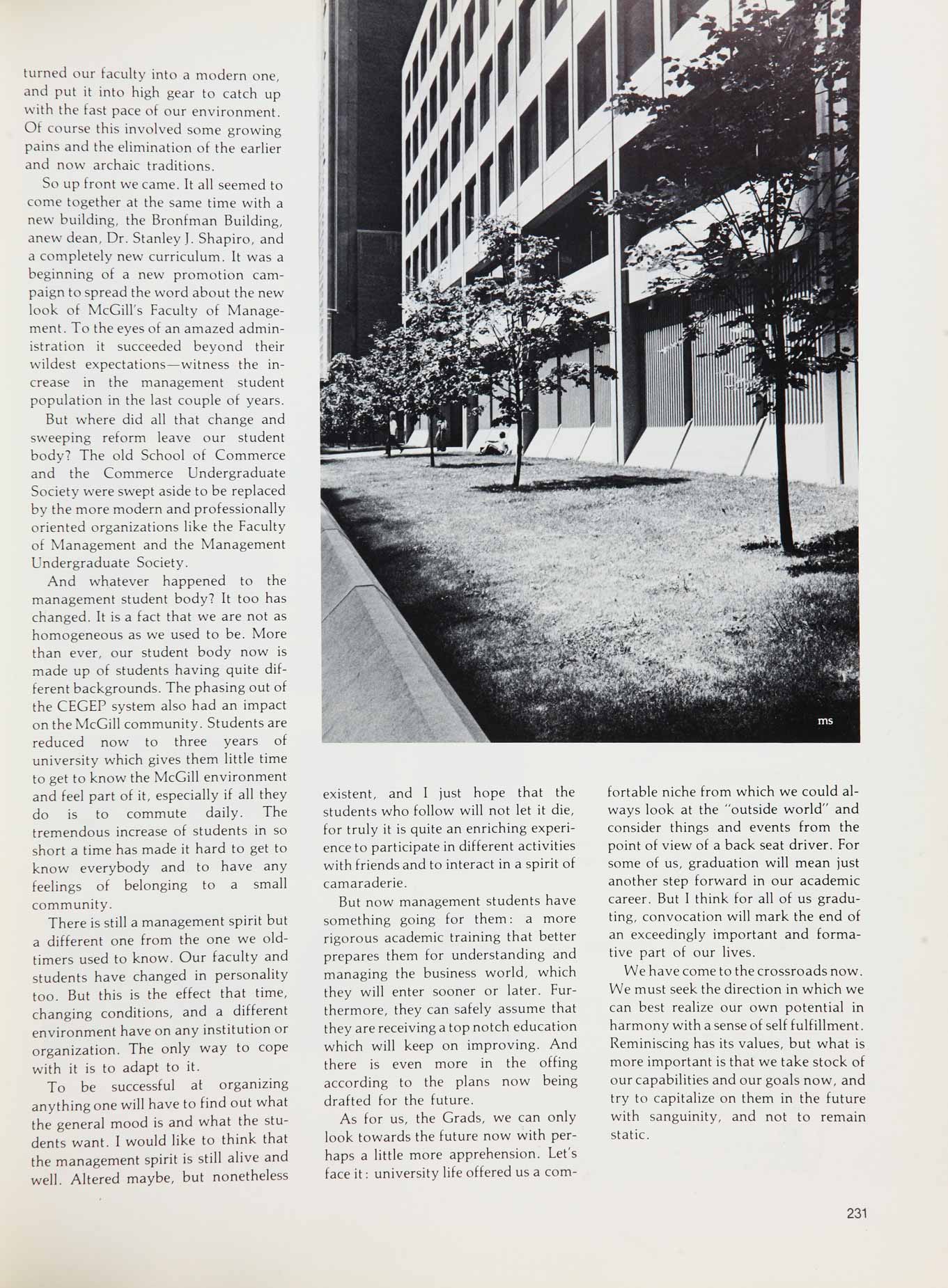
From old to new
Convocation this year for many of us will be the finale to five years of studies at the Faculty of management. It is a time to look back and reminisce about the good things during that span of time, all the changes we’ve been through, and maybe to look at what lies ahead for us.
Comparing what it was like to be a management student five years ago with what it is today, we can truly say that we’ve come a long way since them. Of course the most noticeable change has been the move into new quarters in September of 1972. This meant a lot to the student and was the end of one era and the start of another.
Since its early days the Faculty had been housed in the Victorian splendour of Purvis Hall, but the cramped quarters had quite a charm of their own in a day when the Faculty was smaller and more congenial. Those were the days of a strong esprit-de-corps that will always be remembered by those management students who shared it. In those days we were a group by ourselves. For those of us who were in McGill’s CEGEP it mean a whole new and different environment from the one we were used to. It meant starting the university life straight from high school It meant having classes scattered from Burnside Hall to the Stewart Biology Building.
For what was the Faculty of Management in those days? For one thing, at that time the management student was considered more like a pariah in the academic community. Why would one be in management? It was thought among many that this faculty was the final stop for the misfits and the cretins who had flunked out of Engineering, and Arts and Science. To many it was simply a convenient receptacle for the dregs of McGill. Yes, indeed we were thought of as second class citizens.
But management students were then a tightly knit fraternity. This fraternity was due, in part, to the relatively small size of the faculty, plus the fact that many management students shared the same living quarters in the residence, the ghetto and the frats. Because of this size we never suffered from the impersonality intrinsic to the faculty of Arts and Science. Whether it was at the Commerce bashes, football games or simply business palaver in Purvis Hall, we were able to share a feeling of involvement. Like many graduating students, I have established many enduring and satisfying relationships.
But what about the management program of studies in those early days? The curriculum bordered more on the side of the requirements for an Arts degree. However, some genuine effort was initiated in order to give us management students a more formal business education. There was much experimentation in the contents and formats of some of the courses, which for many of us was a dreadful experience.
We share something in common and it was that desire and feel for management and business that helped us through. It was a field that offered some very good opportunities for a successful career in the “outside world”. But one has to remember that in those days management graduates were somewhat ill-prepared an deficient in certain fields.
The new building made a large difference. The Faculty caught up fast. Overnight there were changes that turned our faculty into a modern one, and put it into high gear to catch up with the fast pace of our environment. Of course this involved some growing pains and the elimination of the earlier and now now archaic traditions.
So up front we came. It all seemed to come together at the same time with a new building, the Bronfman Building, a new dean, Dr. Stanley J. Shapiro, and a completely new curriculum. It was a beginning of a new promotion campaign to spread the word about the new look of McGill’s Faculty of Management. To the eyes of an amazed administration it succeeded beyond their wildest expectations—witness the increase in the management student population in the last couple of years.
But where did all that change and sweeping reform leave our student body? It too has changed. It is a fact that we are not as homogeneous as we used to be. More than ever, our student body now is made up of students having quite different backgrounds. The phasing out of the CEGEP system also had an impact on the McGill community. Students are reduced now to three years of university which gives them little time to get to know the McGill environment and feel part of it, especially if all they do is to commute daily. The tremendous increase of students in so short a time has made it hard to get to know everybody and to have any feelings of belonging to a small community.
There is still a management spirit but a different one from the one we old-timers used to know. Our faculty and students have changed in personality too. But this is the effect that time, changing conditions, and a different environment have on many institution or organization. The only way to cope with it is to adapt to it.
To be successful at organizing anything one will have to find out what the general mood is and what the students want. I would like to think that the management spirit is still alive and well. Altered maybe, but nonetheless existent, and I just hope that the students who follow will not let it die, for truly it is quite an enriching experience to participate in different activities with friends and to interact in a spirit of camaraderie.
But now management students have something going for them: a more rigorous academic training that better prepares them for understanding and managing the business world, which they will enter sooner or later. Furthermore, they can safely assume that they are receiving a top notch education which will keep on improving. And there is even more in the offing according to the plans now being drafted for the future.
As for us, the Grads, we can only look towards the future now with perhaps a little more apprehension. Let’s face it: university life offered us a comfortable niche from which we could always look at the “outside world” and consider things and events from the point of view of a back seat driver. For some of us, graduation will mean just another step forward in our academic career. But I think for all of us graduating, convocation will mark the end of an exceedingly important and formative part of our lives.
We have come to the crossroads now. We must seek the direction in which we can best realize our own potential in harmony with a sense of self fulfillment. Reminiscing has its values, but what is more important is that we take stock of our capabilities and our goals now, and try to capitalize on them in the future with sanguinity, and not to remain static.
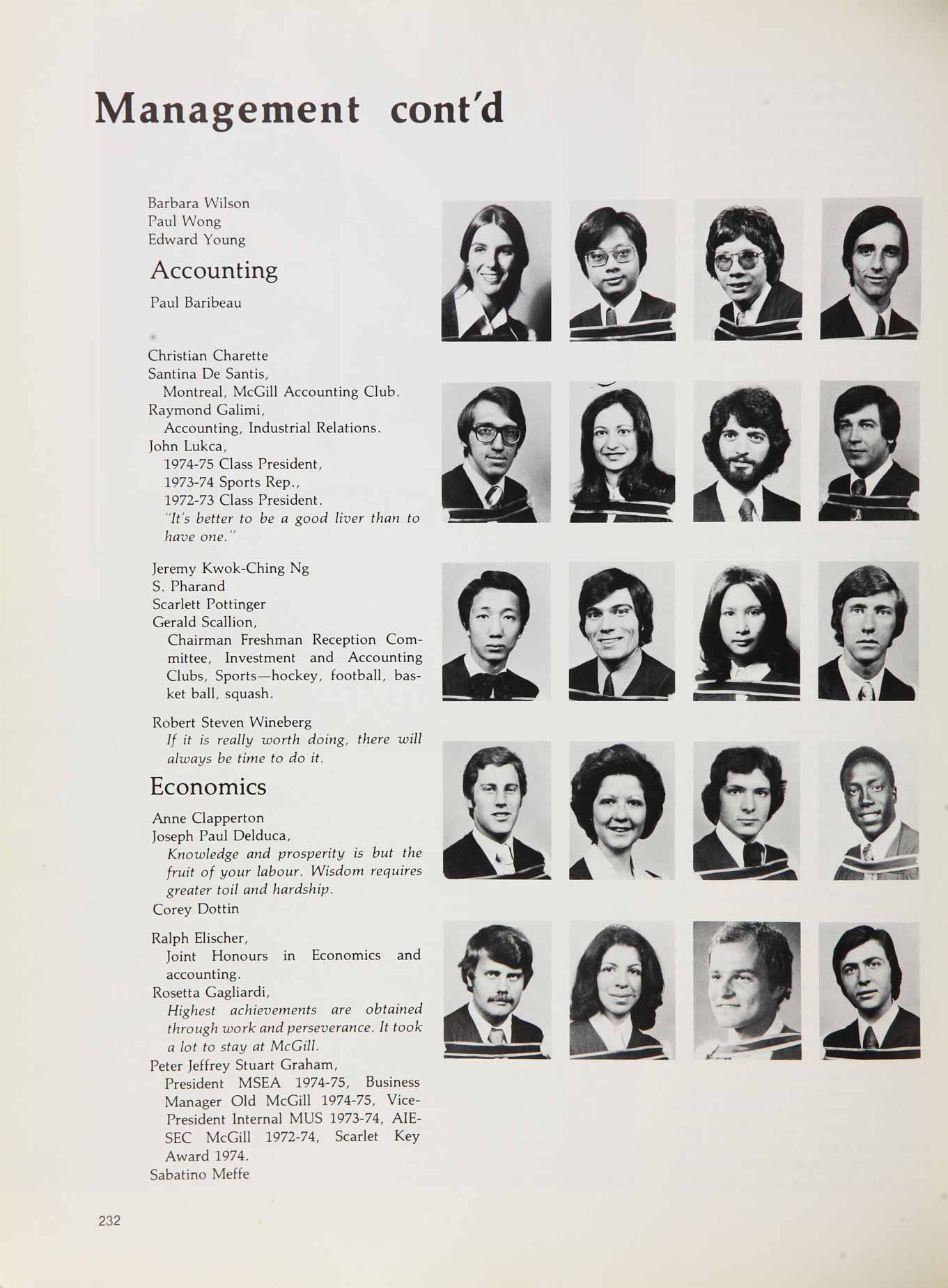
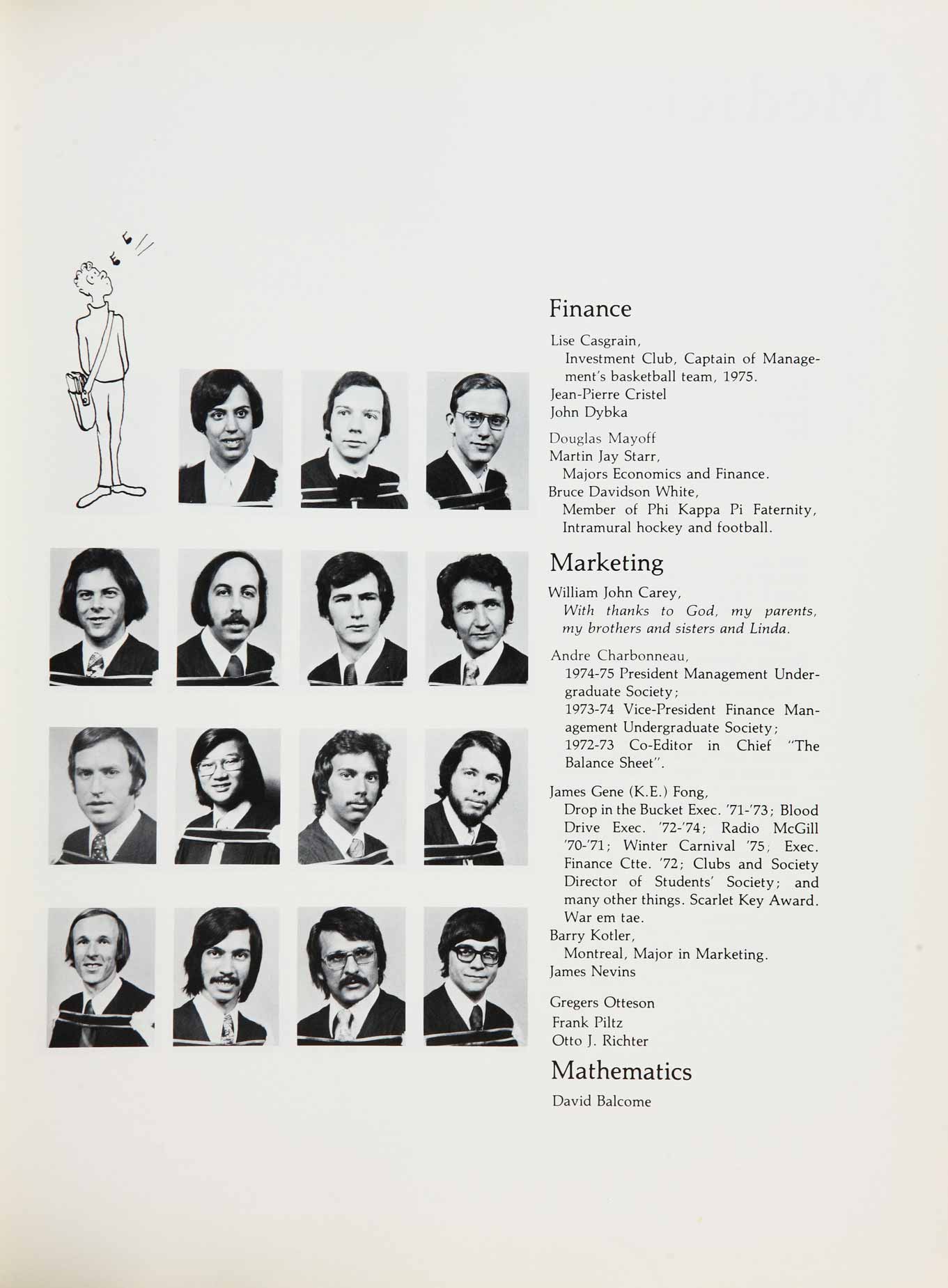
McGill Yearbook: 1975
See original pages: Cover | 1 | 2 | 3 | 4 | 5 | 6 | 7 | 8 | 9 | 10 | 11 | 12 | 13 | 14 | 15 | 16

